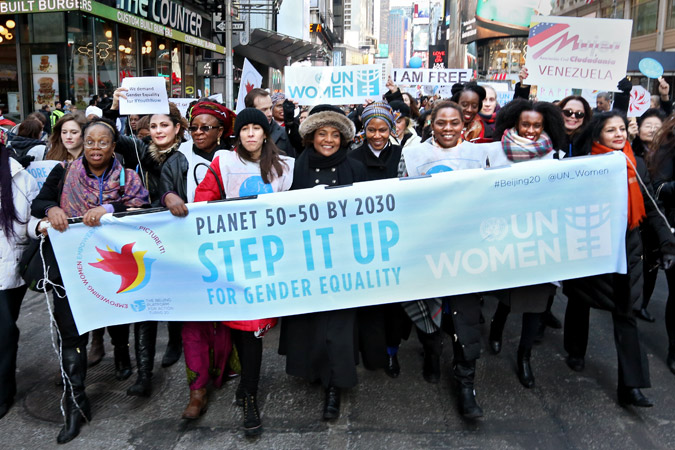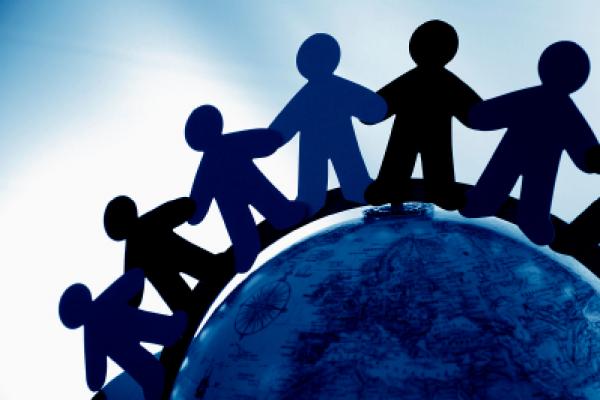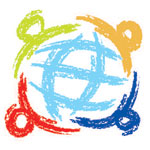2016 Theme: Challenges and Achievements of the Durban Declaration and Programme of Action – 15 years after
The International Day for the Elimination of Racial Discrimination is an opportunity to renew our commitment to building a world of justice and equality where xenophobia and bigotry do not exist. We must learn the lessons of history and acknowledge the profound damage caused by racial discrimination. » Secretary-General Ban Ki-moon
We need to fight racism everywhere, every day. But on 21 March – proclaimed by the General Assembly as the International Day for the Elimination of Racial Discrimination – all eyes are on the issue. This year, the International Day is devoted to challenges and achievements of the Durban Declaration and Programme of Action – 15 years after the landmark document was adopted at the 2001 World Conference Against Racism, Racial Discrimination, Xenophobia and Related Intolerance in South Africa.
The Durban Declaration and Programme of Action is the most comprehensive framework for fighting racism and related forms of intolerance and discrimination. It represents the firm commitment of the international community to tackle these issues, and serves as a basis for advocacy efforts worldwide.
It contains a broad range of measures aimed at combating racism in all of its manifestations, and underscores the human rights of all groups suffering from racial discrimination, emphasizing their right to participate freely and equally in political, social, economic and cultural life.

« Fifteen years after the Durban Conference very little progress has been made in tackling racism, afrophobia, racial discrimination, xenophobia and related intolerance, » three human rights experts said. There is a clear need for putting into practice what was agreed to in Durban. This year’s anniversary, following the 10-year anniversary observed in 2011, provides the opportunity to recommit to taking the actions outlined in the Durban Declaration and Programme of Action, and for all countries, individually and collectively, to intensify efforts aimed at reducing instances of racism, racial discrimination, xenophobia and related intolerance.



 The 2016 theme for International Women’s Day is “Planet 50-50 by 2030: Step It Up for Gender Equality”. The United Nations observance on 8 March will reflect on how to accelerate the 2030 Agenda, building momentum for the effective implementation of the new Sustainable Development Goals. It will equally focus on new commitments under UN Women’s Step It Up initiative, and other existing commitments on gender equality, women’s empowerment and women’s human rights.
The 2016 theme for International Women’s Day is “Planet 50-50 by 2030: Step It Up for Gender Equality”. The United Nations observance on 8 March will reflect on how to accelerate the 2030 Agenda, building momentum for the effective implementation of the new Sustainable Development Goals. It will equally focus on new commitments under UN Women’s Step It Up initiative, and other existing commitments on gender equality, women’s empowerment and women’s human rights. S’il est bien une notion aussi peu et mal partagée sur les différents continents, c’est bien celle de la justice sociale. Et quand l’assemblée générale des Nations Unies a proclamé le 20 février, Journée mondiale de la justice sociale, elle a certainement mesuré la distance qui séparait le voeu de certaines réalités… Elle invite les États Membres à célébrer cette journée mondiale en menant à l’échelon de leur pays des activités concrètes visant à promouvoir les buts et les objectifs proclamés lors du sommet mondial pour le développement social.
S’il est bien une notion aussi peu et mal partagée sur les différents continents, c’est bien celle de la justice sociale. Et quand l’assemblée générale des Nations Unies a proclamé le 20 février, Journée mondiale de la justice sociale, elle a certainement mesuré la distance qui séparait le voeu de certaines réalités… Elle invite les États Membres à célébrer cette journée mondiale en menant à l’échelon de leur pays des activités concrètes visant à promouvoir les buts et les objectifs proclamés lors du sommet mondial pour le développement social. Solidarity refers to a union of interests, purposes or sympathies among members of a group. In the Millennium Declaration world leaders agreed that solidarity was a value that was important to international relations in the 21st century. In light of globalization and growing inequality, the UN realized that strong international solidarity and cooperation was needed to achieve its Millennium Development Goals. The UN was founded on the idea unity and harmony via the concept of collective security that relies on its members’ solidarity to unite for international peace and security.
Solidarity refers to a union of interests, purposes or sympathies among members of a group. In the Millennium Declaration world leaders agreed that solidarity was a value that was important to international relations in the 21st century. In light of globalization and growing inequality, the UN realized that strong international solidarity and cooperation was needed to achieve its Millennium Development Goals. The UN was founded on the idea unity and harmony via the concept of collective security that relies on its members’ solidarity to unite for international peace and security. L’idée de solidarité humaine à l’échelle mondiale peut changer le monde, a déclaré Lech Walesa, cofondateur du mouvement ouvrier Solidarnosc et lauréat du prix Nobel de la paix en 1983. L’ancien Président de la république polonaise inaugurait alors la cérémonie de lancement de la première Journée internationale de la solidarité humaine, qui sera célébrée chaque année le 20 décembre. Cette Journée, proclamée par l’Assemblée générale des nations unies en 2005, a pour but de souligner l’importance de la solidarité pour faire progresser l’ordre du jour des Nations Unies en matière de développement, en particulier, la lutte contre la pauvreté.
L’idée de solidarité humaine à l’échelle mondiale peut changer le monde, a déclaré Lech Walesa, cofondateur du mouvement ouvrier Solidarnosc et lauréat du prix Nobel de la paix en 1983. L’ancien Président de la république polonaise inaugurait alors la cérémonie de lancement de la première Journée internationale de la solidarité humaine, qui sera célébrée chaque année le 20 décembre. Cette Journée, proclamée par l’Assemblée générale des nations unies en 2005, a pour but de souligner l’importance de la solidarité pour faire progresser l’ordre du jour des Nations Unies en matière de développement, en particulier, la lutte contre la pauvreté.